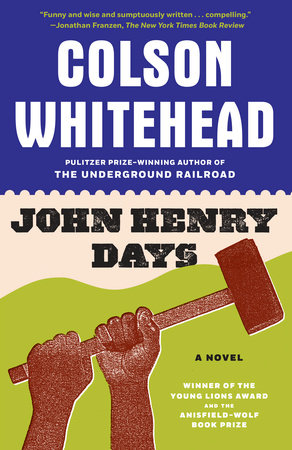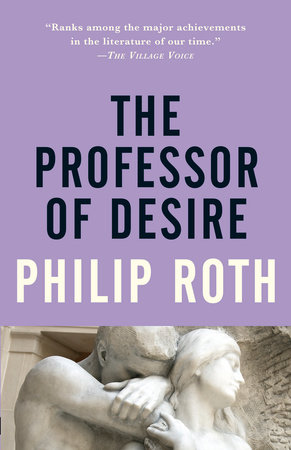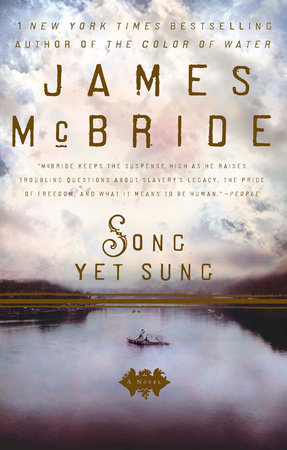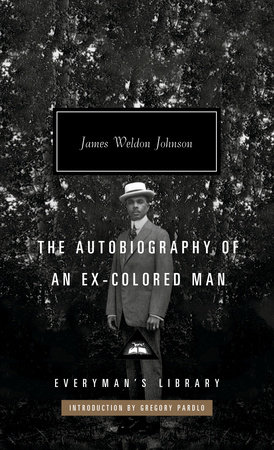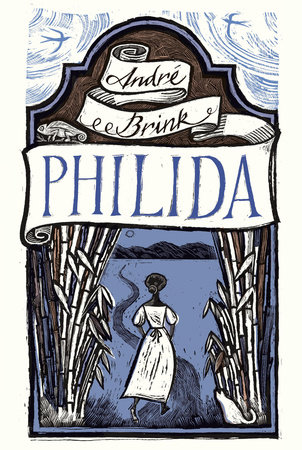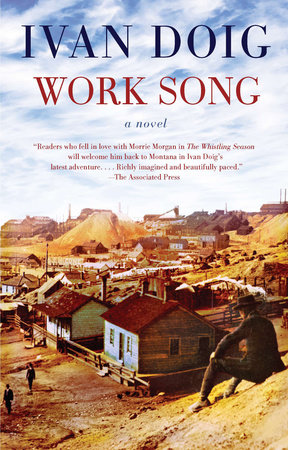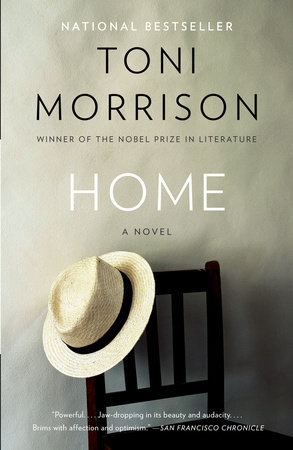Q: One of the major themes of JOHN HENRY DAYS is the changing role of pop culture in American society. What about this subject appealed to you? Is a phenomenon like the myth of John Henry still possible today? What are the similarities and distinctions between the folk hero of 100 years ago and contemporary pop icons?
A: I’ve been interested in John Henry ever since I was a kid, and when I was thinking about what the book would be, I kept thinking about how each generation creates its own interpretation of the John Henry story, and each interpretation is shaped by the form in which it is received. In an intimate saloon, via sheet music, vinyl records then CDs, videotapes. And stamps. So the Rolling Stones appear, as avatars of a perfected mass culture, and simple balladeers appear, as representatives of a time when we shared out stories in the oral tradition. As a creature of the information age, the banality of a John Henry postage stamp struck me as a delightful absurdity. Is this what the great man had been reduced to? Who are the itinerant workers of today, and what kind of shovels do they use? Well, J. and his junketeer pals shovel it on quite well, in ironic counterpoint to John Henry ‘s railroad companions.
Q: You have worked as a journalist for many years. How did your experiences shape the character of J.? What is your relationship to him? Do you see yourself in J.?
A: Part of the fun of creating characters is trying to figure out where they diverge from you and where they intersect. Finding a way into characters that you have little in common with, like Lucien or Alphonse, is what keeps the job interesting. But then there’s also the joy of writing about something you know pretty well–like churning out crappy copy, filing dumb stories, so that you can keep the electricity on. I worked for a couple of years at the Village Voice in New York (or the Downtown News, if you prefer), and I did my time working for shady web sites during the internet gold rush, and a lot of what I saw and experienced is in the book. J. is a bit of a sad case, but some of the dilemmas he faces are ones that I went through during my apprenticeship days. Back to the notion of fun–it’s a pleasure to draw from your own life, but then you also get your kicks from making things up. So J. is a speculation, a sometimes ridiculous exaggeration of what might have been.
Q: We live in a media- and image-saturated culture–one the journalists depicted in JOHN HENRY DAYS both create and derive sustenance from (literally and figuratively). Are the lines between journalism, publicity, and advertising becoming blurred beyond recognition? Is J.’s cynicism justified? What media outlets do you turn to for news and entertainment?
A: I think I had my first suspicions about the media one day when I was in junior high, when I was watching "Entertainment Tonight" and I started to see a pattern. They were doing a piece on that night’s Very Special Episode of "Diff’rent Strokes" and I went, "Wait a minute, why do they only run features on shows that are going to be aired that very same night"? My little twelve year old self was horrified–why the whole show was one big advertisement, and come to think of it, they never said anything negative about the projects they were covering. So I became a bit jaded a long time ago. There certainly is a lot of great journalism being produced these days, but when it comes to the Entertainment Combine, well, the Woodward and Bernsteins of pop culture are few and far between. And we are complicit as consumers, since we buy the magazines that have our celebrity favorites on the cover. The calculations of the media brokers are based on what the public wants, reads and watched. I’m certainly guilty–I’ll watch any crappy television show and buy and insipid magazine if it will take my mind off things for a while.
Q: J’s disillusionment and disaffection are clearly a product of our times. Meanwhile, John Henry’s commitment to his work and family form a nice juxtaposition. How has the relationship of people to their work changed in the last 100 years, and how does this affect our public and private lives? How does it affect J. and John Henry?
A: Part of what makes the John Henry tale so interesting, is that such a larger-than-life struggle is so alien. It’s hard to find the same kind of metaphorical resonance when you are driving a cab, selling mutual funds or writing novels. And yet we all have our own machines we are trying to beat. If we can’t find them, we construct them. Part of the work I tried to do in the book was to collapse the distance between 1872 and 1996, to find ways that a modern reader can access the John Henry story, despite the radical social changes of the last 130 years.
Q: Of all the folk heroes represented in commemorative stamps in the novel, John Henry’s story is the only one not exaggerated to the point of fantasy. Yet his exploits resonate most in the end. To what extent is his story a quintessentially American one? To what extent was the creation of his legend about race? Is that distinction even possible?
A: Right–is the distinction possible? When the contemporary inhabitants see John Henry, they see an American hero. When I first saw John Henry in a cartoon when I was eight years old, I saw an African-American legend. If you have a tale that means something different to every person that hears it, how can we even approach some kind of unified vision of the man? There are a lot of John Henrys in the book, and a lot of characters engaged in their own distinctive competitions–contests with technology, with obsolescence, with their own natures. The very thing that makes the story so dynamic–its mutability–is what makes it so elusive.
